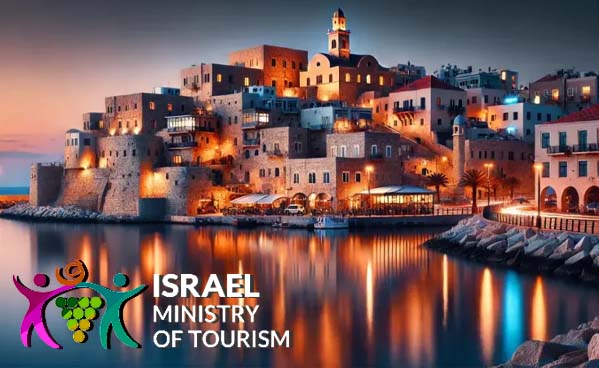
In a bold and forward-looking move, Israel has set an ambitious target to welcome 7 million international tourists annually by 2030, nearly doubling its current tourist arrivals. The announcement, made by the Israeli Ministry of Tourism, signals renewed optimism and strategic planning to position the country as a year-round global travel destination.
The new target is part of Israel’s Vision 2030 tourism strategy, which includes a multi-pronged approach focusing on improved air connectivity, infrastructure upgrades, diversified travel offerings, and enhanced cooperation with the global travel trade.
“Tourism is not just an economic engine for Israel—it’s a bridge of culture, faith, and global dialogue,” said Haim Katz, Israel’s Minister of Tourism. “We are reimagining the entire tourism ecosystem to offer more than pilgrimages. We want the world to experience Israel as a destination for leisure, history, innovation, gastronomy, and nature.”
Rebuilding with Purpose After Crisis
After facing a challenging period due to geopolitical tensions and travel disruptions, Israel’s tourism sector is charting a confident recovery path. The country recorded 2.9 million arrivals in 2023, and while 2024 saw a dip due to regional conflicts, 2025 is shaping up as a year of cautious rebound, bolstered by increased regional stability and global interest.
The Ministry has already started expanding international outreach, with campaigns in key source markets including India, the US, France, Germany, and the UK, emphasizing Israel’s rich mosaic of experiences—from the Dead Sea to Tel Aviv’s nightlife, and from biblical landmarks in Jerusalem to desert adventures in the Negev.
Key Growth Drivers
To support this ambitious goal, Israel is:
- Investing in new hotel development, particularly in underexplored regions like the Golan Heights, Eilat, and the Galilee.
- Enhancing Ben Gurion International Airport’s capacity and planning new regional air links.
- Promoting niche tourism segments such as wine tourism, culinary travel, heritage circuits, and wellness.
- Strengthening visa agreements and simplifying procedures for travelers from key countries.
The Israel Government Tourist Office (IGTO) has also announced new digital platforms and multilingual tools for travel planning and bookings, aiming to provide a seamless visitor experience.
“We’re not just inviting tourists—we’re creating storytellers,” said Eyal Carlin, Tourism Commissioner for North America. “Every traveler who visits Israel returns home with a deeply personal narrative. Our mission is to amplify that.”
Opportunities for the Indian Market
With direct flights between India and Tel Aviv already in place, Israel is eyeing India as a key growth engine in its tourism surge. The country has seen a steady uptick in Indian leisure, spiritual, and MICE travelers over the past five years.
Tourism boards are working with Indian tour operators and wedding planners to showcase Israel as a premium wedding and experiential travel destination, offering both value and uniqueness.
The Road to 2030
Industry experts view Israel’s 2030 vision as not just aspirational, but achievable—with the right mix of political stability, strategic marketing, and sustainable development.
“Israel’s tourism potential is enormous—it’s a destination with layers of meaning for diverse traveler profiles,” said a regional tourism analyst. “If the country can maintain momentum and widen its offerings beyond faith-based tourism, 7 million by 2030 is within reach.”
With its rich cultural landscape, evolving visitor infrastructure, and a renewed focus on experience-driven travel, Israel is not just making a comeback—it’s crafting a compelling new chapter in global tourism.

